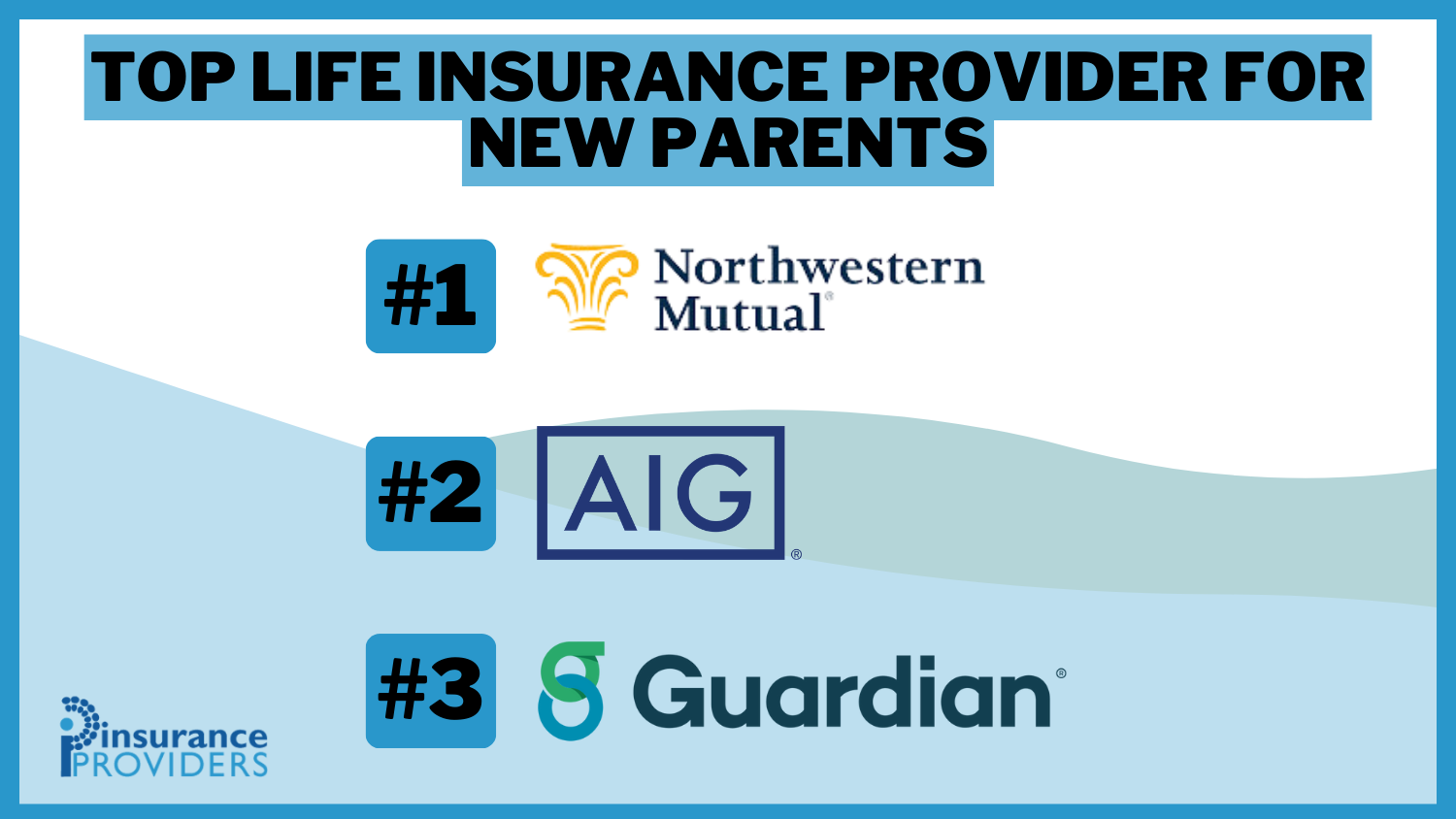What is the Medical Information Bureau?
Are you curious about the Medical Information Bureau (MIB)? Discover the purpose and function of this organization in our comprehensive article. Learn how the MIB collects and shares medical data to assist insurers in assessing risk factors. Find out how this impacts your insurance applications and coverage.
Read more Secured with SHA-256 Encryption





Table of Contents
Table of Contents


Licensed Insurance Agent
Chris is the founder of Abrams Insurance Solutions and Marcan Insurance, which provide personal financial analysis and planning services for families and small businesses across the U.S. His companies represent nearly 100 of the top-rated insurance companies. Chris has been a licensed life and health insurance agent since 2009 and has active insurance licenses in all 50 U.S. states and D.C. Chr...
Chris Abrams


Licensed Agent & Financial Advisor
Schimri Yoyo is a financial advisor with active life and health insurance licenses in seven states and over 20 years of experience. During his career, he has held roles at Foresters Financial, Strayer University, Minnesota Life, Securian Financial Services, Delaware Valley Advisors, Bridgemark Wealth Management, and Fidelity. Schimri is an educator eager to assist individuals and families in ...
Schimri Yoyo
Updated March 2024
The Medical Information Bureau (MIB) is an organization that gathers and stores medical information about individuals in the United States. This information is then shared with insurance companies to help them assess risks and determine insurance rates for potential policyholders. Understanding how the MIB works and its impact on insurance can provide valuable insights for consumers.
Understanding the Medical Information Bureau
When it comes to the world of insurance, the Medical Information Bureau, commonly referred to as MIB, stands as a cornerstone in the industry. Established in 1902, this organization was created by a group of life insurance companies with a noble purpose in mind – to share information and prevent fraud. What began as a small clearinghouse for medical data has since blossomed into a major organization that collects and analyzes vast amounts of information, revolutionizing the way insurers assess risk and determine coverage rates.
The History of the Medical Information Bureau
Let’s take a step back in time and delve into the fascinating history of the Medical Information Bureau. In the early 20th century, life insurance companies faced a common challenge – the lack of comprehensive medical data on individuals seeking coverage. Without access to reliable information, insurers were left in the dark, unable to accurately assess the risks associated with insuring a particular individual. This knowledge gap created opportunities for fraudsters and individuals who concealed important medical history.
Recognizing the need for a solution, a group of visionary life insurance companies came together and established the Medical Information Bureau in 1902. Their goal was simple yet ambitious – to create a centralized source of medical information that would enable insurers to make informed decisions and protect themselves from potential fraud. With the MIB’s inception, a new era in the insurance industry began.
Over the years, the Medical Information Bureau has continuously evolved and adapted to the changing landscape of medical and insurance practices. From its humble beginnings as a small clearinghouse for medical data, the MIB has grown into a powerhouse organization that plays a vital role in the insurance ecosystem.
The Purpose and Role of the Medical Information Bureau
At the core of the Medical Information Bureau’s existence lies its purpose – to provide insurance companies with a centralized and reliable source of medical information about individuals. This rich repository of data allows insurers to assess the risks associated with insuring a particular individual accurately. Armed with comprehensive medical data, insurers can determine appropriate coverage rates and make informed decisions that benefit both the insurance company and the insured.
Imagine a world without the Medical Information Bureau. Insurance companies would be left to rely solely on the information provided by applicants, which may not always be complete or accurate. This lack of reliable data could lead to inflated premiums for some individuals and inadequate coverage for others. The MIB fills this crucial gap, ensuring that insurers have access to comprehensive and trustworthy medical data, leveling the playing field and promoting fairness in the insurance industry.
With its extensive database and analytical capabilities, the Medical Information Bureau has become an indispensable tool for insurers. By collecting and analyzing vast amounts of medical information, the MIB helps insurers identify potential risks, spot patterns, and make data-driven decisions. This not only benefits insurance companies but also contributes to the overall stability and sustainability of the insurance industry as a whole.
In conclusion, the Medical Information Bureau has come a long way since its establishment in 1902. From a small clearinghouse for medical data to a powerhouse organization that revolutionizes the insurance industry, the MIB has played a crucial role in shaping the way insurers assess risk and determine coverage rates. With its comprehensive and reliable medical information, the MIB continues to be an invaluable asset, ensuring fairness, accuracy, and informed decision-making in the world of insurance.
Free Life Insurance Comparison
Compare Quotes From Top Companies and Save
Secured with SHA-256 Encryption
How the Medical Information Bureau Works
Gathering and Storing Medical Information
The Medical Information Bureau (MIB) plays a crucial role in the healthcare industry by collecting and storing medical information from various sources. This information is obtained from insurance applications, medical records, and reports from healthcare providers. The MIB ensures that all data collected is accurate and up-to-date, providing a comprehensive view of an individual’s medical history.
When it comes to gathering medical information, the MIB leaves no stone unturned. They meticulously collect details about past and current medical conditions, medications, surgeries, and treatments. This wealth of information helps create a comprehensive profile of an individual’s health, allowing insurance companies to make informed decisions.
Once the medical information is collected, the MIB takes great care in storing it securely. The data is stored in a highly protected database, accessible only to authorized personnel. This ensures that the confidentiality and privacy of individuals’ medical records are maintained at all times.
Sharing Medical Information with Insurance Companies
One of the primary functions of the MIB is to share medical information with insurance companies. When an individual applies for insurance coverage, the insurance company may request access to their MIB record. This record contains relevant medical information that helps insurers evaluate the applicant’s risk profile.
The MIB acts as a bridge between individuals and insurance companies, providing a detailed report that includes all the necessary medical information. This report allows insurers to assess the applicant’s health status accurately, enabling them to determine the appropriate premiums and coverage terms. By providing this crucial data, the MIB helps insurance companies make fair and informed decisions.
It’s important to note that the MIB does not have the authority to make insurance decisions. Instead, its role is to provide accurate and reliable medical information to insurers, ensuring that the decision-making process is based on concrete data. This transparency benefits both insurers and applicants, as it promotes fairness and accuracy in the insurance industry.
In conclusion, the MIB’s work is vital in the healthcare and insurance sectors. By gathering and storing medical information and sharing it with insurance companies, the MIB ensures that insurers have access to accurate data to make informed decisions. This process ultimately benefits individuals seeking insurance coverage, as it helps determine fair premiums and appropriate coverage terms based on their medical history.
The Impact of the Medical Information Bureau on Insurance
The Medical Information Bureau (MIB) plays a crucial role in the insurance industry by providing valuable data to insurance companies. This information can have a significant impact on insurance rates and the overall assessment of an individual’s health status and risk profile.
How the MIB Affects Insurance Rates
Insurance companies heavily rely on the data provided by the MIB to determine the appropriate insurance premiums for applicants. The MIB collects and maintains a comprehensive database that includes medical information, such as previous medical conditions and high-risk behaviors like smoking or excessive alcohol consumption.
When an individual applies for insurance, the insurance company will request information from the MIB to assess the applicant’s health status and overall risk. If the MIB report reveals a history of medical conditions or high-risk behaviors, the insurance company may consider the applicant to be a higher risk. As a result, the insurance premiums for such individuals may be higher compared to those with a clean medical history and a low-risk profile.
On the other hand, individuals with a clean medical history and a low-risk profile may enjoy lower insurance rates. The MIB report can provide insurance companies with the assurance that these individuals are less likely to require extensive medical treatments or be involved in high-risk activities that could lead to insurance claims.
Disputing Information with the MIB
In some cases, an applicant may believe that there is inaccurate or incomplete information in their MIB record. It is essential for individuals to have the right to dispute such information to ensure the accuracy of their insurance applications.
The MIB has a well-defined dispute resolution process in place to handle such cases. When an applicant wishes to dispute information in their MIB record, they need to provide supporting documentation and evidence to prove the accuracy of the disputed information. This evidence can include medical records, test results, or any other relevant documents.
Once the applicant submits their dispute, the MIB initiates an investigation into the matter. The MIB carefully reviews the evidence provided by the applicant and cross-references it with the existing information in their database. If the investigation reveals any errors or inaccuracies, the MIB takes the necessary steps to correct the information promptly.
This dispute resolution process ensures that individuals have the opportunity to rectify any misinformation that may affect their insurance applications. It allows them to present their case and provide evidence to support their claim, ultimately ensuring that their insurance rates are based on accurate and reliable information.
Privacy Concerns and the Medical Information Bureau
Privacy concerns surrounding medical information have become increasingly important in today’s digital age. With the advancement of technology and the widespread use of electronic health records, individuals are rightfully concerned about the security and confidentiality of their medical data. One organization that plays a significant role in this landscape is the Medical Information Bureau (MIB).
How the MIB Protects Your Information
The MIB recognizes the importance of data privacy and protection. As a central repository for medical information, the organization takes extensive measures to ensure the confidentiality of individuals’ data. Access to the MIB database is strictly limited to authorized personnel who undergo thorough background checks and adhere to strict security protocols.
Furthermore, the MIB employs state-of-the-art encryption technology to safeguard the data against unauthorized access, misuse, or breaches. This ensures that sensitive medical information remains secure and protected from potential threats.
In addition to technological safeguards, the MIB also complies with legal and regulatory requirements regarding privacy and data protection. This includes adhering to industry standards and guidelines set forth by governing bodies to ensure the highest level of privacy and security for individuals’ medical information.
Criticisms and Controversies Surrounding the MIB
Despite the MIB’s efforts to protect individuals’ privacy, the organization has faced criticisms and controversies over the years. One of the main concerns raised by critics is the lack of transparency and control over personal information. Some argue that individuals may be unfairly judged or discriminated against based on their past medical history. (For more information, read our “What personal information is available to life insurance companies?“).
While these concerns are valid, it is important to note that the MIB has taken steps to address them. The organization has implemented measures to ensure fair and ethical practices when it comes to accessing and using individuals’ medical information. This includes establishing strict guidelines for the appropriate use of the data and providing individuals with the ability to review and dispute any inaccuracies in their records.
Furthermore, the MIB actively collaborates with insurance companies and healthcare providers to promote transparency and accountability in the handling of medical information. This collaborative approach aims to strike a balance between protecting individuals’ privacy and ensuring that insurers have access to accurate and relevant data to make informed decisions.
It is worth noting that the MIB operates within a legal framework that governs the use of medical information. Laws, such as the Health Insurance Portability and Accountability Act (HIPAA), provide individuals with certain rights and protections regarding the privacy and security of their medical records. These legal safeguards help ensure that the MIB and other organizations handling medical information adhere to strict standards and guidelines.
In conclusion, while privacy concerns surrounding the Medical Information Bureau exist, the organization has implemented robust security measures and continues to address criticisms to protect individuals’ medical information. By striking a balance between privacy and the need for accurate data, the MIB plays a crucial role in the insurance industry while upholding ethical and fair practices.
Free Life Insurance Comparison
Compare Quotes From Top Companies and Save
Secured with SHA-256 Encryption
Frequently Asked Questions about the Medical Information Bureau
How to Access Your MIB Record
If you want to access your MIB record, you can request a copy of your report by contacting the MIB directly. They will provide you with the necessary instructions and requirements to obtain your record. It’s essential to review your MIB record periodically to ensure its accuracy and address any discrepancies promptly.
Can You Opt Out of the MIB?
The MIB is a resource used by insurance companies to evaluate risk accurately. As such, it is not possible to opt out of the MIB entirely. However, you can take steps to ensure the accuracy of your MIB record by maintaining transparent and up-to-date medical records. By being proactive in managing your health information, you can have greater control over how insurers perceive your risk profile.
In conclusion, the Medical Information Bureau plays a vital role in the insurance industry by providing insurance companies with a centralized source of medical information. Understanding how the MIB works, its impact on insurance rates, and the privacy considerations involved can help individuals make informed decisions when seeking insurance coverage. It is essential to be proactive in managing your personal health information to ensure its accuracy and address any discrepancies promptly.
Frequently Asked Questions
What is the Medical Information Bureau?
The Medical Information Bureau (MIB) is a nonprofit organization that operates as a clearinghouse for medical and other information on individuals applying for life, health, disability income, and long-term care insurance.
What is the purpose of the Medical Information Bureau?
The purpose of the Medical Information Bureau is to provide insurance companies with access to medical and other relevant information about applicants in order to help them make informed underwriting decisions.
How does the Medical Information Bureau collect information?
The Medical Information Bureau collects information from insurance companies, who are members of the MIB, when individuals apply for insurance coverage. These companies share information about an applicant’s medical conditions, lifestyle habits, and other relevant data.
What types of information does the Medical Information Bureau maintain?
The Medical Information Bureau maintains information related to an individual’s medical conditions, prescription drug history, past insurance applications, and any adverse underwriting decisions made by insurance companies based on the shared information.
Who has access to the information stored by the Medical Information Bureau?
Only insurance companies that are members of the Medical Information Bureau have access to the information stored in its database. This access is strictly regulated and requires proper authorization and adherence to privacy laws.
Can individuals access their own information stored by the Medical Information Bureau?
Yes, individuals have the right to access their own information stored by the Medical Information Bureau. They can request a copy of their MIB Consumer File and review the information for accuracy. If any discrepancies are found, they have the right to dispute and correct the information.
Get a FREE Quote in Minutes
Insurance rates change constantly — we help you stay ahead by making it easy to compare top options and save.






